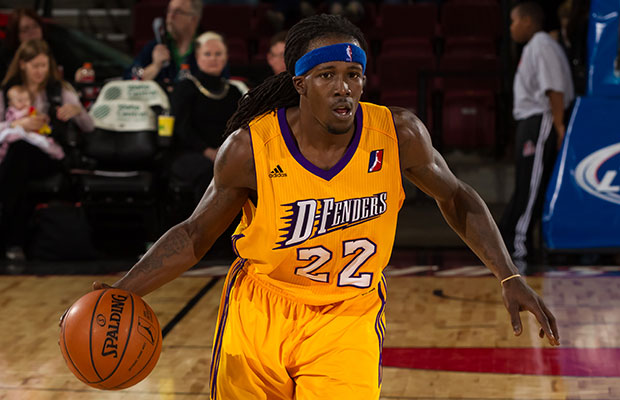Let’s face it: money matters. Even the most modest and well-liked players in the NBA won’t deny the impact that money has on their decision. This is especially true when players decide to leave college early to pursue a professional career. I can’t blame them. However, I’m not sure paying college players is the solution to this problem, and to me, whether or not to pay collegiate athletes is not the real question at hand.
Here is the true question: should we even force high school players to play college ball in the first place? Now, I understand many of the arguments in favor of the one-year NCAA mandate before entering the NBA, and even those asking for a two-year mandate. It makes for better college basketball talent and the players find themselves in better physical and mental shape before entering the NBA draft. Typically they will have an easier transition to professional basketball and will fit into an NBA program much better with the extra experience.
With all this being said, I don’t think that a one-year college mandate is necessarily the best solution. Put yourself in the shoes of these players. Some of their families rely on the financial support that they bring in. Sometimes taking a year away from their family and only focusing on an intensive basketball system that offers no compensation just isn’t an option for a college athlete. Many argue the scholarships are well worth the incredible time and energy they put into the sport.
Although it makes sense from a basketball talent perspective for the players to stay, they would rather opt for the NBA in pursuit of definite money in the short run rather than a larger potential contract if they stay for another year or two. We’ve seen it all too often with programs like Kentucky, where guys like Devin Harris, James Young, the Harrison twins, and others probably would have fared better staying in college for a couple more years. Many of these players feel family pressure to leave college in pursuit of an NBA contract, even if it might be more beneficial in the long run to stay.
Another major concern for these players is the loss of draft stock that might come with another year of college play. New talent threatens to detract from the playing time of a returning player, the possibility of a poor performance could lead to a substantially smaller contract, and the risk of a serious injury could end a career altogether. Some players might find themselves undrafted, like Aaron Harrison did following his sophomore season.
As we have seen already from players like Aquille Carr, Emmanuel Mudiay, and Brandon Jennings, it is increasingly more common for players to opt out of college ball in pursuit of an overseas contract in leagues based out of China, Turkey, and the like. These contracts can be incredibly lucrative, and foreign markets are showing they want young talent. Mudiay landed the largest contract a high school recruit has received from overseas with a substantial $1.2 million for one year of play.
Jennings has proven that this tactic can that lead to success in the NBA. The record is still out for Mudiay, but it looks like his issues with SMU might actually be in his favor based on his summer league performance and the praise of his teammates and coaches. Players can gain fantastic professional experience in very talented leagues while still maintaining a source of income. However, it is not easy for every high school recruit to find overseas contracts, and some professional teams worry about how high school talent translates to the non-NBA professional level. An even greater concern comes from NBA coaches that question how overseas experience then translates to the NBA.
Another viable option that has been widely discussed is allowing these players to sign D-league contracts with NBA teams. This allows players to work alongside near-NBA talent, players that are either on the verge of playing in the NBA and those who have just lost a roster spot. If the NBA offered just slightly more lucrative contracts than the very modest D-league contracts of today, it would definitely incentivize high school talent to take D-league contracts that come with heavy NBA attention. Every D-league game can be found on YouTube, and NBA teams are sure to pay more attention to their D-league talent if they have decent money invested in developing those players. Players can be noticed much more easily by NBA teams and can focus all of their efforts on improving their games in a professional setting instead of focusing on both school and basketball.
The issue itself is obviously very complex, and there is no one solution. Hopefully we will see the NBA and NCAA offer a host of solutions for high school recruits to better both their game and enjoy the financial opportunities of playing professionally. Giving high school recruits the option to pursue a D-league contract in the NBA will give players another viable option that caters to their needs.







